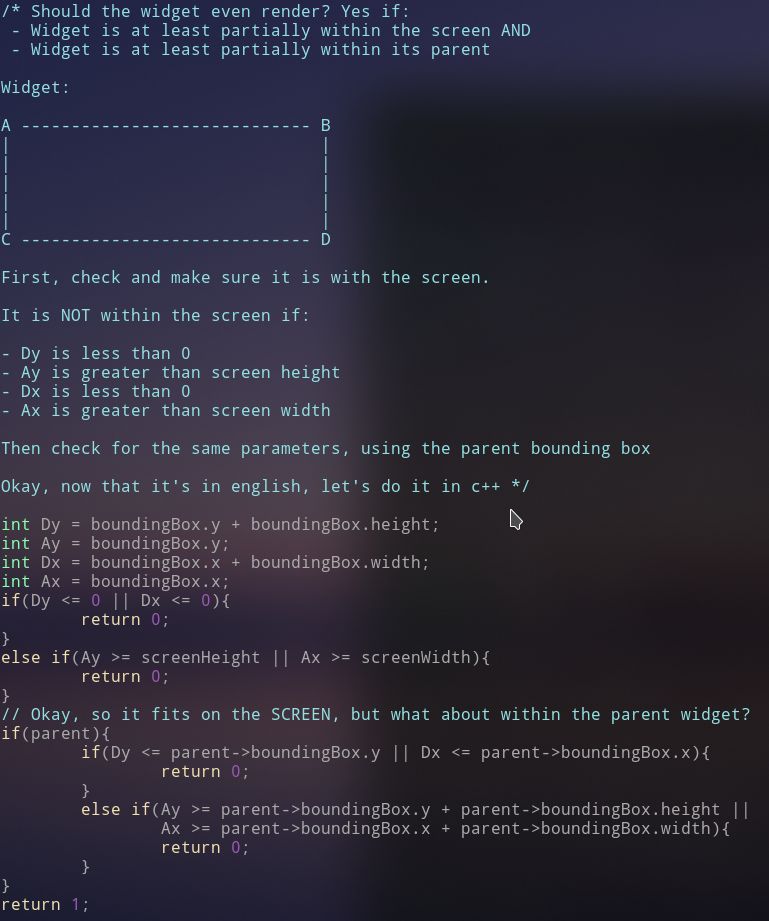Details
-
AboutNot-so-junior developer.
-
Skillsjs, ts
-
LocationBudapest, Hungary
Joined devRant on 3/9/2019
Join devRant
Do all the things like
++ or -- rants, post your own rants, comment on others' rants and build your customized dev avatar
Sign Up
Pipeless API

From the creators of devRant, Pipeless lets you power real-time personalized recommendations and activity feeds using a simple API
Learn More
-
Damn these pihole stats... more than half of all requests are ads or otherwise unwanted. Mind you I've only had this running for about a week now but still god damn!
Also I use ublock origin on my main pc 8
8 -
My teams current process is:
1) Asked by product to create “T-Shirt size” estimates, also known as a WAG (wild ass guess). The process is the mental equivalent of throwing darts while blindfolded, after being spun around in a circle and pointed in the wrong direction.
2) Product make firm commitments to upper management based off these. Ensuring them that all these features will make it out in Q2.
3) 4 days before Q2 starts, product ask engineering to figure out the real estimates based off no concrete information what so ever.
4) 4 Weeks into Q2, product provide the missing information.
5) Engineering inform product that the estimates are out by a factor of 1.5 - 3 times the original estimates.
6) Product sends angry email to upper management that through not fault of product, engineering are unable to meet the deadlines.
7) Everyone shout and complain until 1 week before Q3, then see point 1.
Following this process, you and your team can be just as delightful as me.
That’s the practiseSafeHex guarantee!4 -
I hate doing estimates, but I had to adapt. Since I work remotely and under contract, I'm used to track my time and estimate by hours.
I did a lot of mistakes before, which means I worked for free to wrap up fixed price projects.
Today, the method that is working best for me is:
1) positive estimate
2) most likely estimate
3) worst case estimate
Sum up and divide by 3.
I do this for every task.
Also, for Web projects, I like to divide tasks in categories like: HTML / CSS, UX, programming, testing.4 -
Here's how it usually goes:
1) I estimate the different aspects of the assignment to the best of my abillities, based on customer criteria and information. I come up with an realistic estimate for development and testing.
2) My PM runs the numbers through an algorithm. It adds time for other stuff, but its all still very fair and in tune.
Now to the fucked up part.
3) My ceo and cto looks at the estimate, and he will just turn on every possible button and twist the estimate into what he thinks he can get the customer to pay🤢🤮
This ends in the customer saying - no thank you.
He comes back to us and does not understand why they declined.
Idiot! -
Sales employee Bob wants a clickable blue button.
Bob tells product owner Karen about his unstoppable desire for clickable blue buttons.
Karen assigns points for potential and impact (how much does a blue button improve Bob's life, how many people like Bob desire blue buttons)
Karen asks the button team how hard it is to build a button. The button team compares the request to a reference button they've built before, and gives an ease score, with higher score being easier (inverse of scrum points).
These three scores are combined to give a priority score. The global buttonbacklog is sorted by priority.
Once every two weeks (a "sprint") the button team convenes, uses the ease scores to assign scrum points. Difficult tasks are broken up into smaller tasks, because there is a scrum point upper limit. They use the average of the last 5 sprints to calculate each developer's "velocity".
The sprint is filled with tasks, from the top of the global button backlog, up to the team's capacity as determined by velocity. Approximate due dates are assigned, Bob is a happy Bob.
What if boss Peter runs into the office screaming "OUR IMPORTANT CLIENT WANTS A FUCKING PINK BUTTON WHICH MAKES HEARTS APPEAR"?
Devs tell boss to shut the fuck up and talk to Karen. Karen has a carefully curated list of button building tasks sorted by priority, can sedate boss with valium so he calms the fuck down until he can make a case for the impact and potential of his pink button.
Karen might agree that Peter's pink button gets a higher priority than Bob's blue button.
But devs are nocturnal creatures, easily disturbed when approached by humans, their natural rhythms thrown out of balance.
So the sprint is "locked", and Peter's pink button appears at the top of the global backlog, from where it flows into the next sprint.
On rare occasions a sprint is broken open, for example when Karen realizes that all of the end users will commit suicide if they don't have a pink heart-spawning button.
In such an event, Peter must make Bob happy (because Bob is crying that his blue button is delayed). And Peter must make the button team of devs happy.
This usually leads to a ritual involving chocolate or even hardware gift certificates to restore balance to the dev ecosystem.22 -
My process for estimating dev work?
3 hours a day of uninterrupted dev time, 4 days a week (~12 hours a week).
So when I say the project will take 24 hours, it is about two weeks worth of work.2 -
First I write a list of all the features that the client wants on their website, then I break down the features into tasks, then I estimate the number of hours required for each task, then I sum all the hours and multiply the final number by 3.1
-
More often than not, I hear that the mission-critical stuff in Linux is done by paid people, the folks that work from 9 to 5 with a fixed time/resource schedule. Is software in Linux all like that? Say for example, Linux (kernel), systemd, Xorg, all the desktop environments, LibreOffice, Mozilla, Chromium and such.
The reason why I'm asking is because I kind of feel like the premise behind Linux "free, libre, *philanthropic*" and such is kinda wrong. Especially the latter. Do the people in the mission-critical stuff really care about its stability any more than commercial software devs do? Sure the projects driven by personal needs that are published are philanthropic in their nature, I'm having some of those too. But those are all non-critical and maintained as such. The stuff that's behind the steering wheel however? I'm not sure...
In essence, is the mission-critical part of the Linux ecosystem - however open-source it is - any different from other commercial software products QA-wise?3 -
I'm just around 8kg away from officially becoming overweight.
As someone who had trouble gaining weight most of my life, this is very exciting!
Gotta get back to exercising soon. But I'm not a gym person. I guess I'll go for run or cycling along with workouts at home.10 -
This was my first freelancer project. Just dropped out of school, i think i was 17. No money, no proper hardware, i had a very old laptop & stolen wifi from our neighbor. I lived in a very small room at my mom’s flat, she wanted me out as soon as i turn 18. At the time my plan was to work on freelancer stuff and make my own games. “It will be fine, fuck school, who needs school? 😂“ I haven’t really finished anything back then, so i only had a few wip hobby projects to show ppl as my references. I saw a freelancer job posting. The task was to make a simple quiz game for mobile, it paid 350$. Back then that was a lot of money for me so i took it. I met the client, he said “2-3 week tops, i send you everything, you do the code” Cool. I finally had a “job”😃. The 2-3 weeks turned into a 8 month blur of all-nighting and just implement one more thing and its finished. I did not really have any experience on how to deal with clients and i really needed this project to finally have something on my porfolio. I motivated myself with “if i can finish this i can finish anything”. I think the story of my most definitive all-nighting was 3 months into the development. I finally got everything from the client so it was like just put it together and its done. The client wanted 300 levels, beeing a noob i was i started making all the 300 unity scenes by hand, aligning the pictures, the ui, testing each level, making adjustments to the code, etc.. after a really long night and a fuckton of caffeine i was done. I sent it to the client at around 9 am and gone to sleep. When i woke up i checked my emails to saw this: Cool! But can we do hints? (wich needed a fuckton of rework of my code) I think i had my first mental breakdown while working on the project. After that he wanted more modifications and because i made every level by hand i had to remake all of them like 10 times 😂
But in the end it turned out positive, he really helped me to start my carrier, we became sord of friends and the project gave me a lot of confidence and experience on how to deal with stuff when shit goes wrong because everything that can go wrong in a project gone wrong. It was the most valuable developer lesson. Plus it sounds so cool to say “i was born in development hell, b*tch!”🕶
I attached a pic of the laptop i worked on 😂
Thanks for reading 😃 32
32





